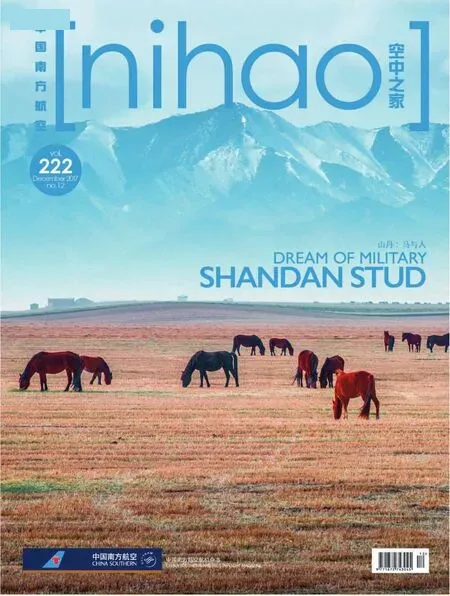Dongzhi festival,celebrate with reunion dinners
Text by Zhu Zhu Photos by Ji Lin Translation by Hu Nan
Dongzhi festival,celebrate with reunion dinners
Text by Zhu Zhu Photos by Ji Lin Translation by Hu Nan

The traditional Chinese calendars divide a year into 24 solar terms. Dongzhi is the 22nd solar term, and marks the winter solstice. It is the earliest of the 24 seasonal division points which can be traced back to the Spring and Autumn Period.
The Dongzhi became a festival during the Han Dynasty and thrived in the Tang and Song dynasties. Now the Dongzhi Festival, or Winter Solstice Festival is one of the most important festivals celebrated by the Chinese.
In some parts of north China, people eat lamb dumplings on this day, since dumplings are shaped like ears. Moreover, it is said that eating lamb dumplings will keep them from frost in the upcoming winter. On a chilly winter's day, a hot bowl of dumpling soup can warm people's stomachs and also their hearts.
While in Guangdong, a warmer place in southern China, people value more on family reunions, than an occasion to have a cold-fi ghting feast.
There is an old saying in Guangdong that quot;Winter Solstice is more signifi cant than the Spring Festival,quot;showing the great importance attached to this day.On this day, as a tradition in Guangdong, people working far from their hometown will go back to their relatives and participate the rituals including offering sacrifi ces to their ancestors.
Later the whole family will get together to have a huge feast where chicken and duck are prepared.
Traditionally people will make and eat Tangyuan,a kind of stuffed small dumpling ball made of glutinous rice fl our which symbolises reunion.
Hot pot is common during Dongzhi and is a famous Chinese soup containing a variety of foodstuffs and ingredients, prepared with a simmering pot of soup stock at the dining table. Guangdong has its own style.
The soup stock in a traditional Cantonese hot pot is usually pre-prepared with ingredients including raw fi sh slices, squid slices, raw shrimp slices and so on. A Cantonese variation includes mixing a raw egg with the condiments to reduce the amount ofquot;heatquot; absorbed by the food, thereby reducing the likelihood of a sore throat after the steamboat meal,according to Chinese herbalist theories.
In some places you can even try the traditional coal or wood-heated steamboat or hot pot, even though people now do not care too much about it. Families will gather and have a hot pot to celebrate the joyful Dongzhi Festival, no matter what they use for the
hot pot.
Usually, Cantonese restaurants in Guangzhou would be particularly busy on this day. You have to make reservations for Dongzhi Feast one or two months in advance. In some popular restaurants,even some guests will make reservations for Dongzhi Feast when having a meal to celebrate the Mid-Autumn Festival which is held on the 15th day of the 8th month of the lunar calendar,corresponding to late September to early October of the Gregorian calendar.


The elders in Guangzhou are not often fond of spicy food. Hence, if seniorities will take part in the feast,those restaurants with delicious Cantonese cuisine are good choices.
Guangdong people insist that chicken is a must for a feast. Therefore, chicken is an indispensable dish in Guangdong's Dongzhi family feast, and you can choose white cut chicken, shredded chicken or salt roasted chicken as you like.Siu mei, a Chinese rotisserie style of cooking that consists of meat only with no vegetables, is also essential. You can try char siu, roast duck, roast goose or roast pig as you like.
Fish and shrimp are also necessaries for the feast,or people may feel a loss of happiness for the festival.
The most popular dish in the feast may be the steaming savoury soup. When having it on a cold winter night, people can be full of happiness.
Besides Cantonese cuisine, all dishes from other culinary styles that are related to the hot pot are also popular in the feast, for instance Teochew beef hot pot. Stewed beluga served in a big iron bowl,a typical dish from the northeast China is also a popular choice.
The Cantonese will never give cold shoulders to creative dishes, as long as they are delicious and can make people feel warm on a cold winter night.
On the last Dongzhi Festival the most popular dishes included roasted fi sh in a Sichuan style. This year the favourite is predicted to be stewed fi sh with soy sauce.

